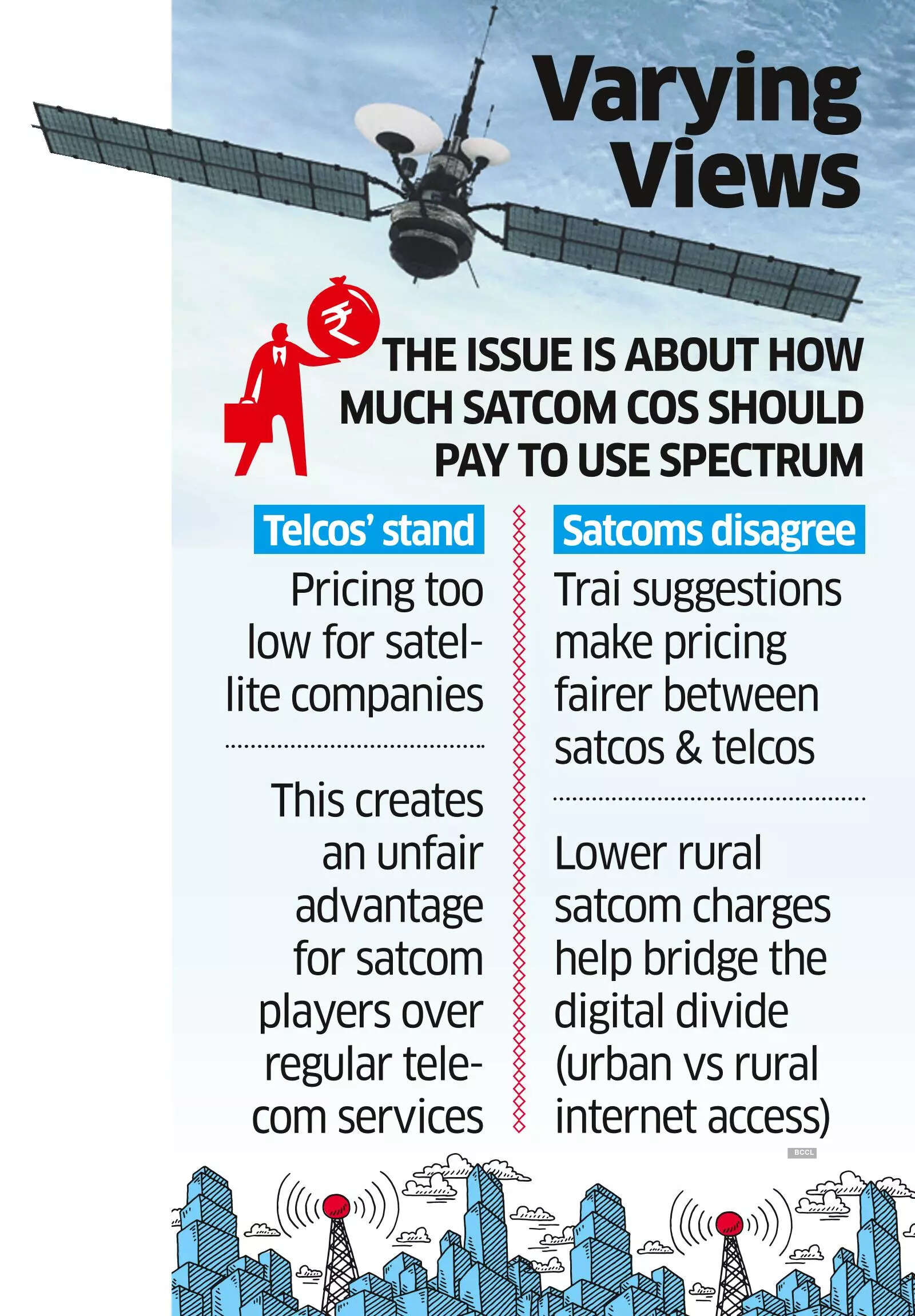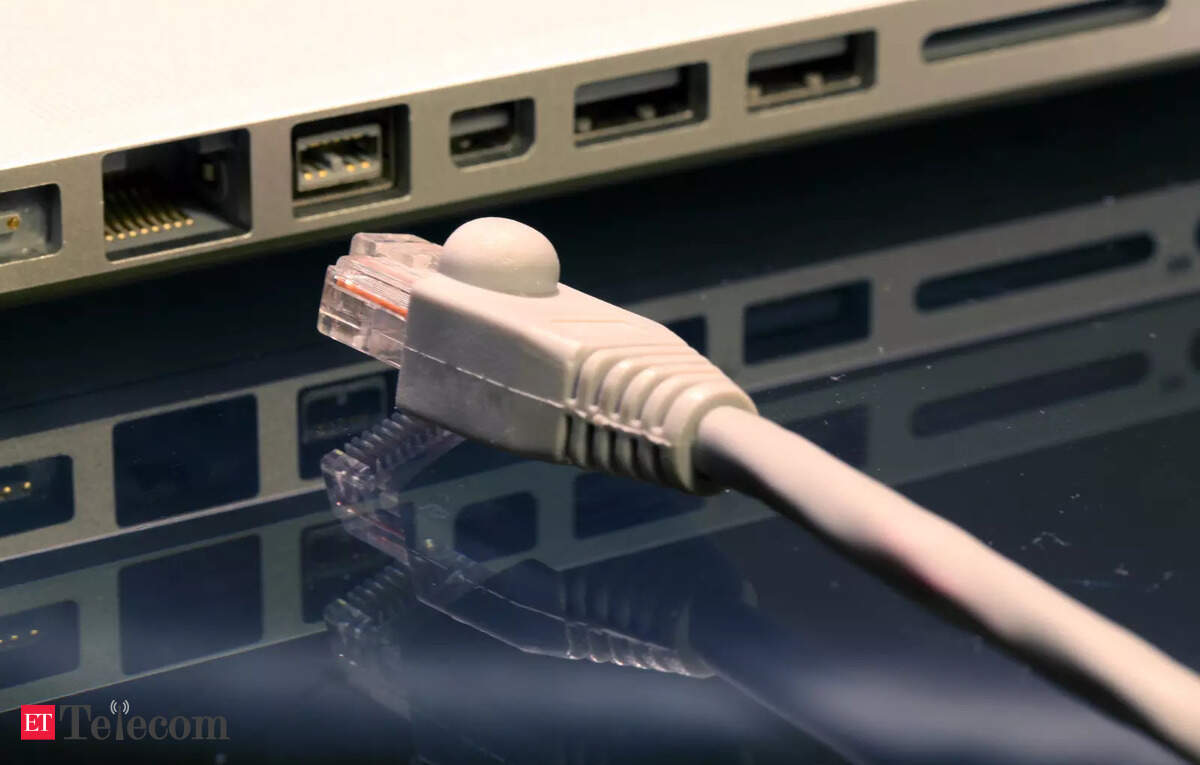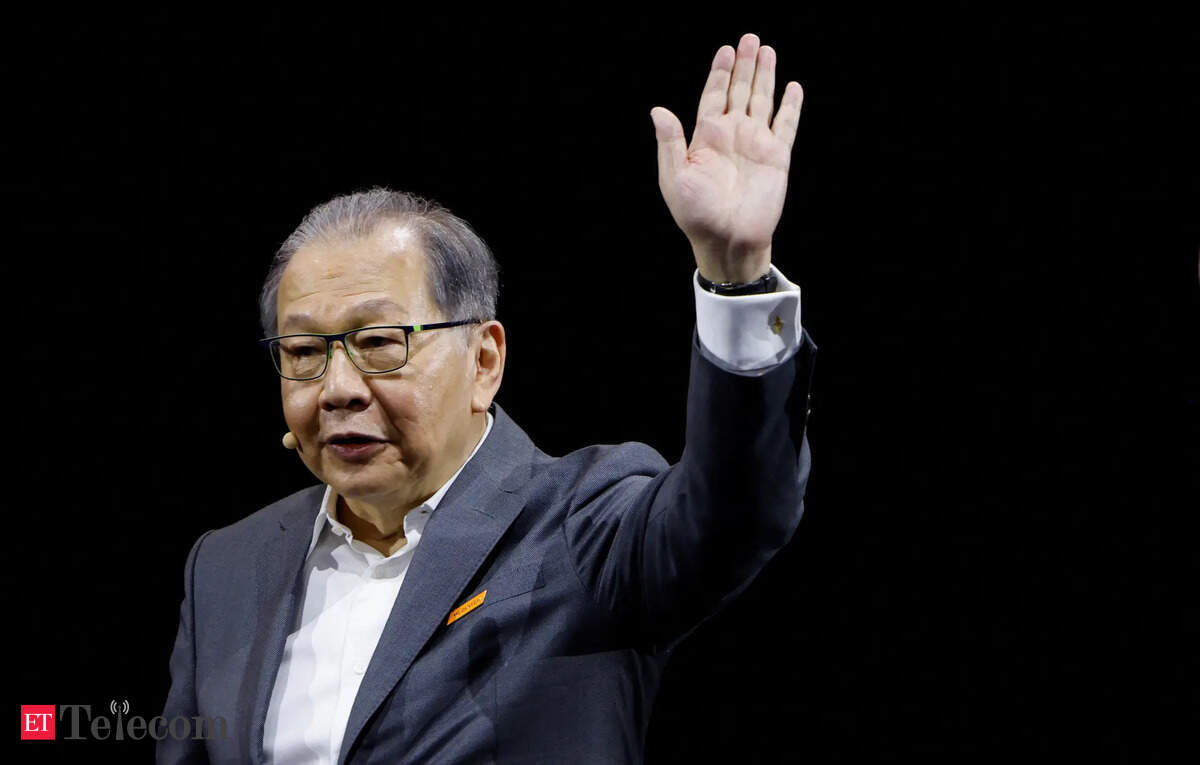Telecom Regulatory Authority Of India: Satcom Firms Challenge Telcos Over TRAI's Spectrum Pricing Recommendations, ET Telecom
Satcom firms said the regulator’s call for differential pricing of satellite spectrum for urban and rural markets is clearly aimed at ensuring a level playing field between satcom and terrestrial broadband players.
Read by: 100 Industry Professionals
Read by 100 Industry Professionals
Kolkata: Satellite companies have disputed the contention of telecom companies that the Telecom Regulatory Authority of India (Trai) ignored the competitive parity issue in its recent recommendations on satcom spectrum pricing.
Satcom firms said the regulator’s call for differential pricing of satellite spectrum for urban and rural markets is clearly aimed at ensuring a level playing field between satcom and terrestrial broadband players.
The regulator’s suggestion to also increase the satcom spectrum fee from its earlier recommendation is another step to ring in competitive parity between satellite and terrestrial broadband services, the companies argued. According to them, it is very unlikely that Trai’s recommendations were submitted without the concurrence of the government, given that the Centre has been strongly backing administrative allocation of satcom airwaves.
Some senior satcom industry executives called the telcos’ latest criticism of Trai’s recommendations “an underhand tactic” to force satcom players to shell out a substantial auction-determined upfront charge for airwaves.
Trai’s recommendations have not proposed any upfront charge or allocation price for satellite spectrum.

Telecom operators, in a recent joint letter through the Cellular Operators Association of India (COAI) to various government authorities, had slammed Trai’s recommendations on satcoms spectrum pricing, calling it unjustifiably low. Telcos had cautioned the government that if Trai’s recommendations were implemented in their current form, that would create a non-level playing field and impact the sustainability of terrestrial telecom services.
“The claims are baseless,” a senior satcoms industry executive, who did not wish to be named, told ET, adding: “On the contrary, the regulator has recommended differential satcom spectrum pricing for rural and urban areas primarily to ensure a level playing field between satcom and terrestrial broadband players.”
He said Trai’s suggestion to set the spectrum usage fee for satcom services at 4% of adjusted gross revenue (AGR) “is actually higher” than its own earlier recommendation of 1% of AGR for commercial VSAT services, adding that this along with the extra charge of Rs 500 per subscriber annually for urban areas would be key steps to ensure competitive parity between satellite and terrestrial broadband players.
Trai, while proposing the extra charge per subscriber for urban areas, has not suggested any such charge for rural users. In its recommendations to the government, it proposed that both geostationary (GSO) and non-geostationary (NGSO) satellite players pay a fee at 4% of AGR for satcom airwaves assigned for five years.
Another top satellite industry executive said Trai’s recommendations were aimed to ring in affordable satellite internet services to bridge the sharp broadband digital divide between rural and urban India. “Latest Trai data underlines the sharp variance between total urban internet users (per 100 population) at 111.64 versus the total rural internet users at 44.99, a scenario that has not been addressed by the terrestrial operators for years,” he said.
Hughes Network Systems India president Pranav Roach also dismissed the telcos’ view that Trai’s proposal to subsidise satellite user terminals or satellite operators through the Digital Bharat Nidhi (DBN) fund would tilt the playing field against the terrestrial operators.
These funds, he said, are initially credited to the Consolidated Fund of India before being allocated to the DBN, and this mechanism is outlined in the Telecommunications Act, 2023, wherein it’s the government that determines their allocation. “Therefore, it is not appropriate for anyone to challenge the Trai recommendation to the government regarding the use of DBN funds for subsidising satellite user terminals and satellite operators,” said Roach.
He added that one, typically, “does not question” the government's discretion in using tax revenue for purposes such as education, health, highway development, or other central initiatives. “That some (telecom companies) have contributed to the DBN does not grant them the right to dictate how the government should utilise these funds,” he argued.
- Published On Jun 5, 2025 at 07:32 AM IST











